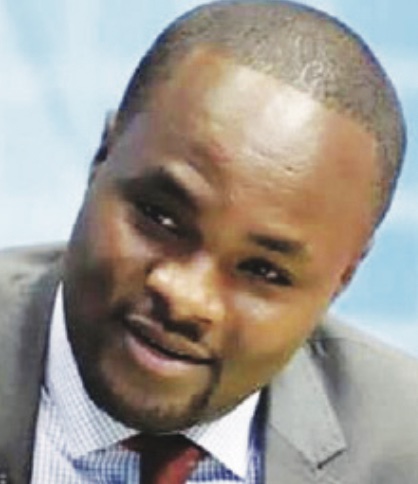
Screenshot

This column draws upon a keynote address I was privileged to deliver, on 6th August 2025, at the Second Annual Convention on Policing in Uganda, organized by Justice Access Point (JAP), under the theme: ‘Democratic Policing and Public Trust in Uganda: Bridging Normative Standards with Lived Realities.’
I am grateful to Justice Access Point, and its Executive Director, Mr. Mohammed Ndifuna, for the kind invitation. The theme was a well-chosen one, as it forced a reflection on the tension between the promise of the 1995 Constitution, on the one hand, and experiences of the ordinary Ugandan, on the other, with respect to the role and functions of the Uganda Police Force.
Such a reflection is even more urgent as we head towards yet another round of general ‘elections’, scheduled to be held in January 2026. In that address, I foregrounded one main idea: that the crisis of policing in Uganda is only a manifestation of the crisis of the Ugandan State itself (one replicated in multiple other crises – across the Judiciary, the Legislature and the Executive – and also manifested in several past and emerging questions, such as the ‘Buganda’, ‘Northern’, ‘Asian’, ‘Banyarwanda’, ‘Land’, ‘Muslim’, ‘Balaalo’, ‘Bafuruki’ and other questions).
Unless and until that broader crisis is properly and genuinely settled, it will remain difficult, if not impossible, to realize any notion of ‘democratic policing’ in Uganda. At the heart of the concept of ‘democratic policing’ is the notion that the power of the police rests on public consent to their existence, functions and roles – that is to say ‘policing by consent’.
This itself draws on the idea of the ‘Social Contract’ as theorized by John Locke, Thomas Hobbes, JeanJacques Rousseau. They suggested that governance rests on an agreement under which society gives up some freedoms to the State and government, in return for protection through, among other things, law and order.
To this end, democratic policing broadly relates to a police service which is accountable to the public, governed by the rule of law, respectful of human rights and human dignity and which takes great care not to unnecessarily violate the private sphere of citizens’ lives. Unfortunately, the history of the Uganda Police Force is almost inextricably linked to the problematic nature of the State, which had to be held together primarily through violence.
The declaration of a British Protectorate over Uganda in 1894 was supported by the deployment of an armed force consisting primarily of African men serving under a few British officers.
This combined the duties of the police (internal security) with that of the army (protection from external threats). Invariably, those ‘threats’ usually consisted of Africans trying to resist the further entrenchment of colonial rule. A formal Police Force would be established in 1906, and an Inspector General appointed to command it.
Nonetheless, for all intents and purposes, the police throughout the colonial period served to protect the interests of the colonial state, rather than to promote the rights and welfare of the peoples within that entity.
Secondly, the police usually conducted military operations in addition to the usual traditional police functions. Notable examples included suppression of the Nyangire rebellion in Bunyoro in 1907; the Lamogi rebellion in 1911 in Northern Uganda; the Buganda riots of 1945 and 1949, and the agitation in 1953 which followed the exiling of Kabaka Mutesa II.

Indeed, a special ‘anti-riot’ unit and ‘Special Branch’ were set up in the late colonial period, as demands for independence increased with the changing global and local landscape that emerged following the Second World War. It was the Protectorate Police which enforced the entirety of the draconian colonial law, including the Removal of Undesirable Natives Ordinance (1907) and the Deportation Ordinance (1908), as well as the various declarations of ‘states of emergency’, ‘disturbed areas’ and other proclamations which would then witness enhanced measures such as curfews and roadblocks.
It was this ‘Police Force’ which continued after 1962, in terms of both structure and psyche. As successive post-independence regimes maintained, replicated and even advanced colonial mechanisms of oppressive law, the police increasingly found itself representing the domestic face of terror, rather than service and accountability.
It was the police which enforced Obote’s Public Order and Security Act (POSA) and Idi Amin’s various Decrees (suspending political party activity, restricting speech, allowing for the trial of civilians by the military and so on).
Like the colonial police, they enforced states of emergency, oversaw roadblocks and carried out enforced disappearances and extra-judicial killings. Moreover, as it was in the colonial period, the police and the army were practically fused, and ‘special units’ created to blur the distinctions between these entities.
Thus, Obote had his ‘General Service Unit’ (GSU), while Amin had his State Research Bureau (SRB). Essentially, independence saw the ‘Africanization’ of the Uganda police, but not its democratization.
At the same time, outside Uganda, the concept of democratic policing gained traction as a feature of international law generally, and international human rights law in particular.
The rights to life, liberty and security of the person, the freedoms of expression and assembly and to freedom from torture and related guarantees were enshrined in, and protected by, such documents as the Universal Declaration of Human Rights (UDHR) of 1948; the International Covenant on Civil and Political Rights (ICCPR) of 1966; the United Nations Code of Conduct for Law Enforcement Officials of 1979; the African Charter on Human and Peoples’ Rights of 1987; the United Nations Basic Principles on the Use of Force and Firearms by Law Enforcement Officials of 1990; and the African Commission Resolution on Police Reform, Accountability and Civilian Police Oversight in Africa of 2006.
Together, these documents emphasize the need for policing to be democratic and accountable, and exercised in a manner which promotes and protects, rather than diminishes, human rights.
It is also recognized that police should only use potentially lethal force when strictly required, such as to protect life or prevent serious injury in circumstances where the threat in question is imminent. In all circumstances, any use of force by police should be tempered by considerations of necessity, and proportionality
At the national level, the 1995 Constitution (which marks three decades of existence today) promised a new era for the protection of human rights in Uganda. The people were declared sovereign (Article 1), and the supremacy of the Constitution expressed to apply to all persons and authorities, including the police (Article 2).
In addition, an entire Chapter (Chapter Four) was also dedicated to the protection of human rights, guaranteeing such rights as the freedoms of expression, movement, assembly and association (Article 29); the rights to life (Article 22) and to liberty (Article 23); the freedom from torture (Article 24) and others.
Specifically, the Constitution established the Uganda Police Force (Article 211(1)); and required that it be ‘nationalistic, patriotic, professional, disciplined, competent and productive’ and that its members be ‘citizens of Uganda of good character’ (Article 211 (3)).
In terms of Article 212, the functions of the police were stated as including: to protect life and property; to preserve law and order; to prevent and detect crime; and to co-operate with the civilian authority and other security organs established under the Constitution and with the population generally.

The Constitution also established the command structure of the police, providing for the office of the Inspector-General of Police and their Deputy, who must be appointed by the President with the approval of Parliament (Article 213). In particular, the Constitution stipulated that, in the performance of their functions, the Inspector-General of Police be ‘subject to and act in accordance with the laws of Uganda’ (Article 213 (4)).
At the same time, unfortunately, the same provision allows the President to ‘give directions to the Inspector General’ with regard to ‘matters of policy’. Similarly, unfortunately, neither the Inspector-General of Police nor their Deputy enjoy any special security of tenure, since, under Article 213 (5), they ‘may be removed from office by the President’ with no stipulation of cause or mechanism for review.
The Parliament was also empowered, under Article 214, to make laws for the organization and administration of the Uganda Police Force and for its general regulation. Crucially, this mandate included the special stipulation that such law be such as to ensure ‘that members of the Uganda Police Force are recruited from every district of Uganda’ (Article 214 (b)).
Finally, under Article 221, all security organizations, including the Uganda Police Force, were required to observe and respect human rights and freedoms in the performance of their functions.
Evidently, the Constitution attempted to establish a framework for democratic and accountable policing in Uganda. So, what went wrong? Why, in the run up to the 2026 general elections, will the Uganda Police Force certainly behave like an extension not only of the Uganda Peoples’ Defence Forces (UPDF) but also of the National Resistance Movement (NRM)?
Why will the Uganda Police Force brutalize Ugandans as if they were enemy combatants in an active armed conflict? Why, in spite of Articles 1, 211-214, 221 and the entire Chapter Four of the 1995 Constitution (not to mention Uganda’s international legal commitments) will the Uganda Police Force behave as if to be a member of the opposition, or to seek to exercise any democratic rights and freedoms, is equivalent to joining a rebel movement?
Why will a clear distinction be witnessed in the experiences of NRM candidates and supporters (who will enjoy full police protection even when they flagrantly disobey basic laws) and opposition candidates and supporters (who will be hounded and hunted down as if they were common thugs, for daring to exercise the most basic rights?
We shall answer these, and related questions (including possible reforms) in the column next week.
The writer is Senior Lecturer and Director of the Human Rights and Peace Centre (HURIPEC) at the School of Law, Makerere University, where he teaches Constitutional Law and International Law.


